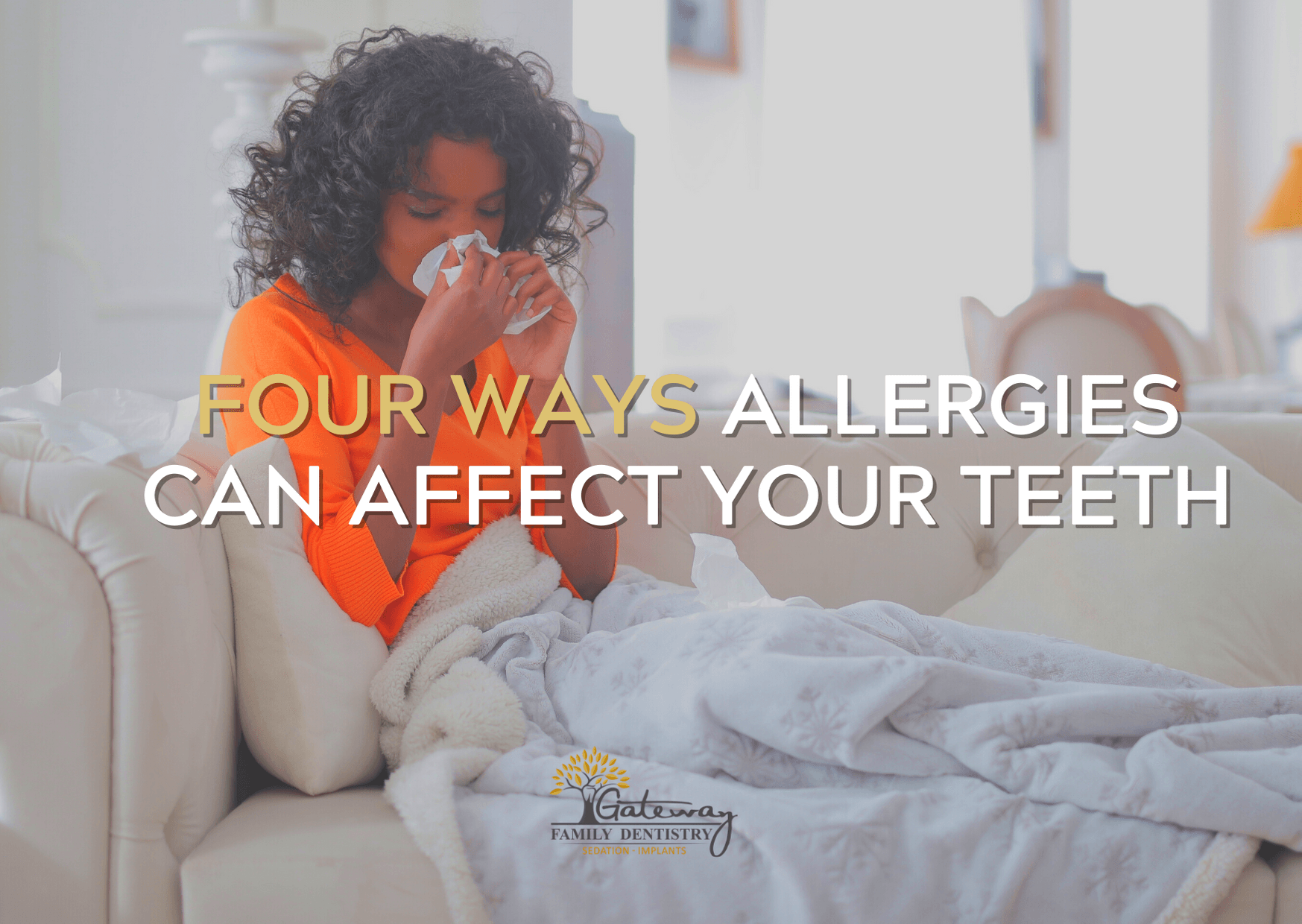Gateway Family Dental Blog
How Seasonal Allergies Can Affect Your Smile

If you suffer from seasonal allergies, you know how uncomfortable they can make you feel. The budding trees, blooming flowers, and growing grass can leave you feeling stuffed up and miserable. The same can happen as the leaves turn to beautiful colors each fall.
In addition to sneezing, itchy eyes, and a scratchy throat, you can experience toothaches and many unwanted oral issues. The following are four ways allergies can affect your teeth.
Dry Mouth
As you become stuffed up from the pollen in the air, you tend to breathe through your mouth more. Whether you experience a runny nose, or your sinuses are completely closed off from swelling, breathing through your mouth may be your only option. Unfortunately, this isn't good for your oral health.
As you breathe through your mouth, your saliva dries up. This leaves you with a condition referred to as dry mouth. Dry mouth creates an environment that is ideal for cavities. Saliva not only helps you with digestion but also washes away food particles in your mouth while neutralizing acidity. Food particles and acidity both contribute to cavity formation.
In addition to the natural effects of allergies, antihistamines further contribute to dry mouth. These allergy medications dry up the mucus in the sinuses and the saliva in your mouth.
Tooth Pain
Tooth pain is another way allergies can affect your teeth. Allergies can cause you to feel pain, especially in the molars. Seasonal allergies affect your maxillary sinuses. Congestion and pressure build in them. This creates that pressure you feel in your head and face, but it also places pressure on the roots of your teeth.
The root tips of your molars sit very close to your sinuses. That same pressure that you feel in the face and head puts pressure on those roots. The result is pain and inflammation in the upper molars.
Bad Breath
One of the most common symptoms of seasonal allergies is a runny nose. Your allergies increase mucus production within your sinuses and nose. The nasal discharge that this situation creates can slip down the throat, where it provides oral bacteria with a perfect place to multiply. The increased bacteria results in bad breath.
The longer your allergies affect you, the worse this problem can become. You might even experience a sore throat due to nasal discharge. Combined with breathing through the mouth, it becomes a vicious circle that is hard to break out of once it starts.
Swollen Gums
Swollen gums can be painful and unsightly. While bacteria and vigorous brushing can cause your gums to swell, your allergies can as well. That same postnasal drip is at work here. When the postnasal drip is combined with a dry mouth, you can experience swollen, red, and sore gums.
Swollen gums can make you self-conscious about your smile, and it can be hard to brush your teeth. As the pain keeps you from brushing as much as you need to, it makes it hard to reach some areas. Over time, this can cause gingivitis and gum disease as well as canker sores inside of the mouth. These issues can continue to cause problems long after your allergies subside, so it is important to seek dental care if you start noticing any of these symptoms.
Avoid Long-Lasting Oral Problems
To keep your smile beautiful and your mouth healthy, treat your seasonal allergies with the proper medications and continue your routine dental checkups with Gateway Family Dentistry. We look forward to helping you maintain your oral health!




